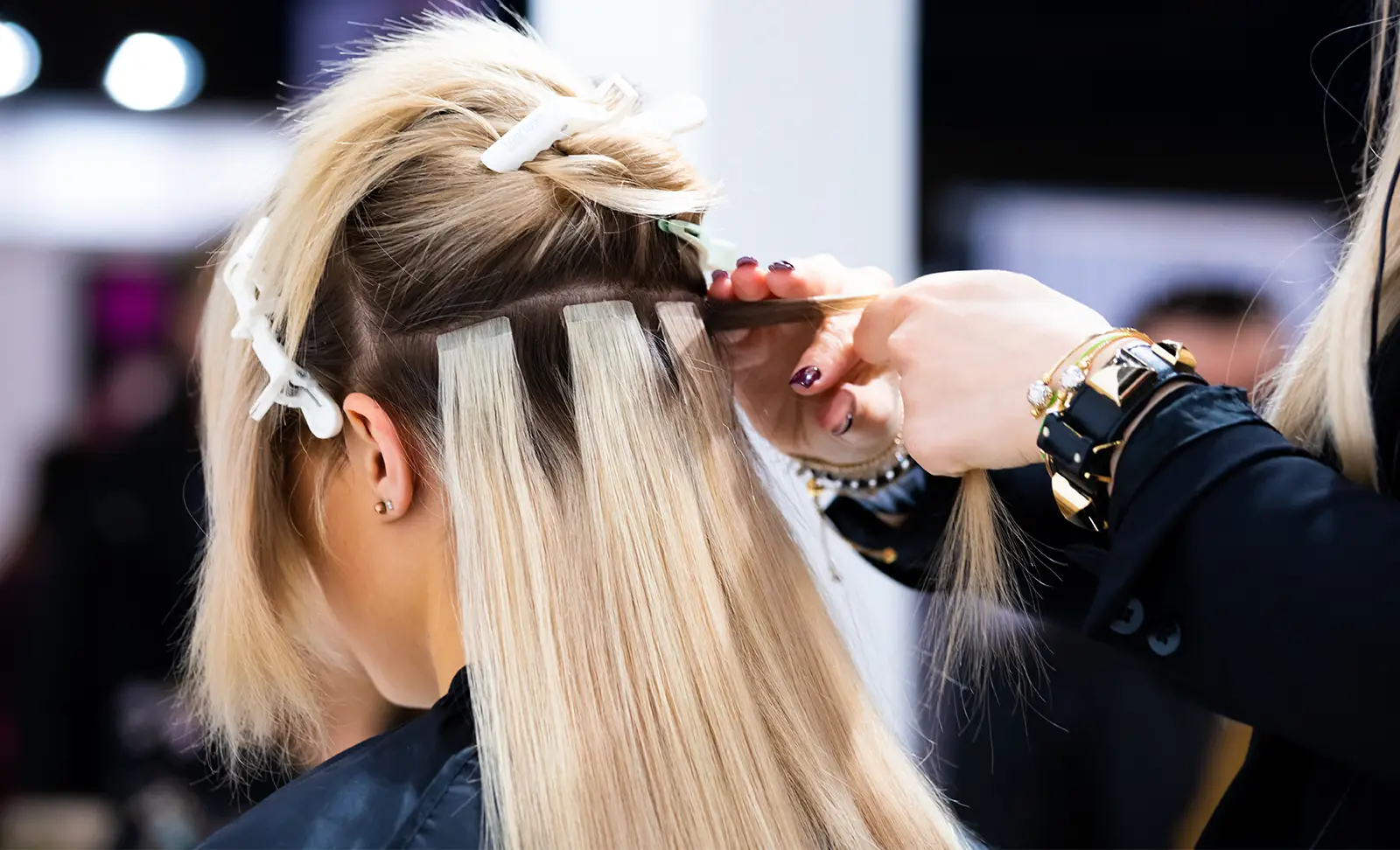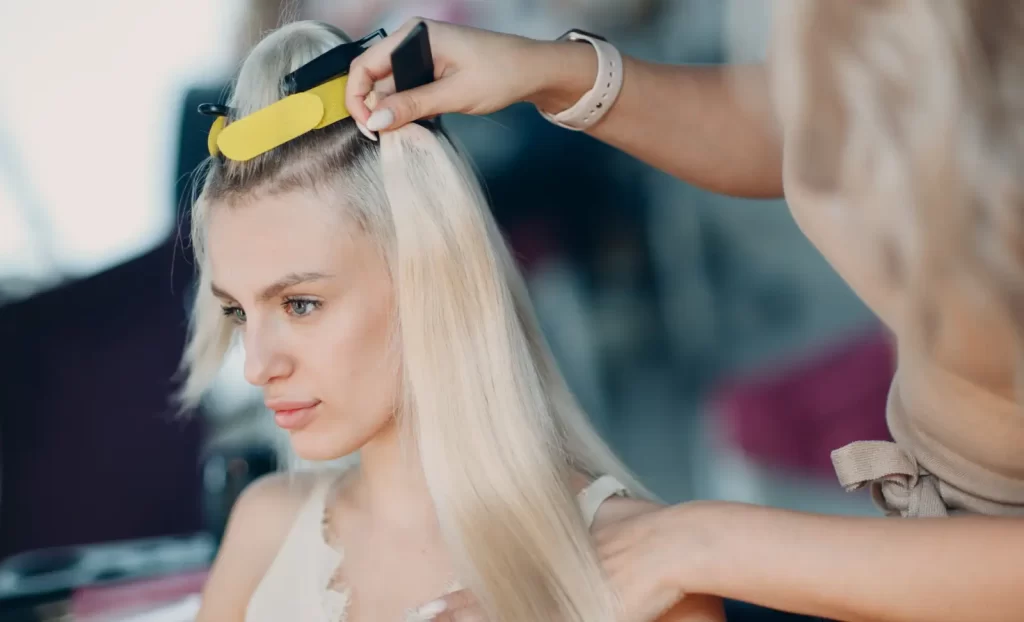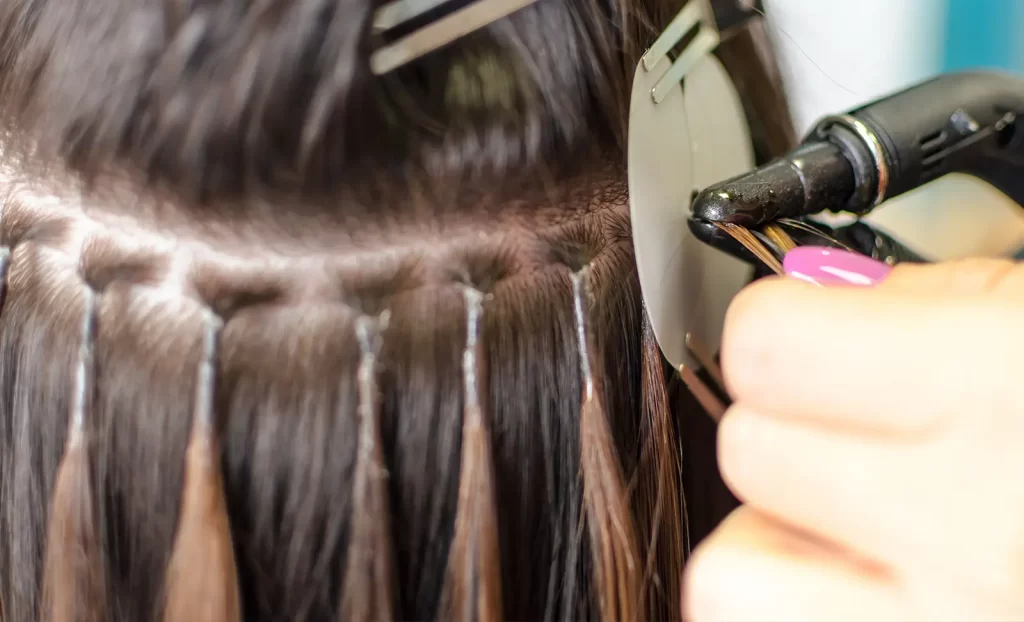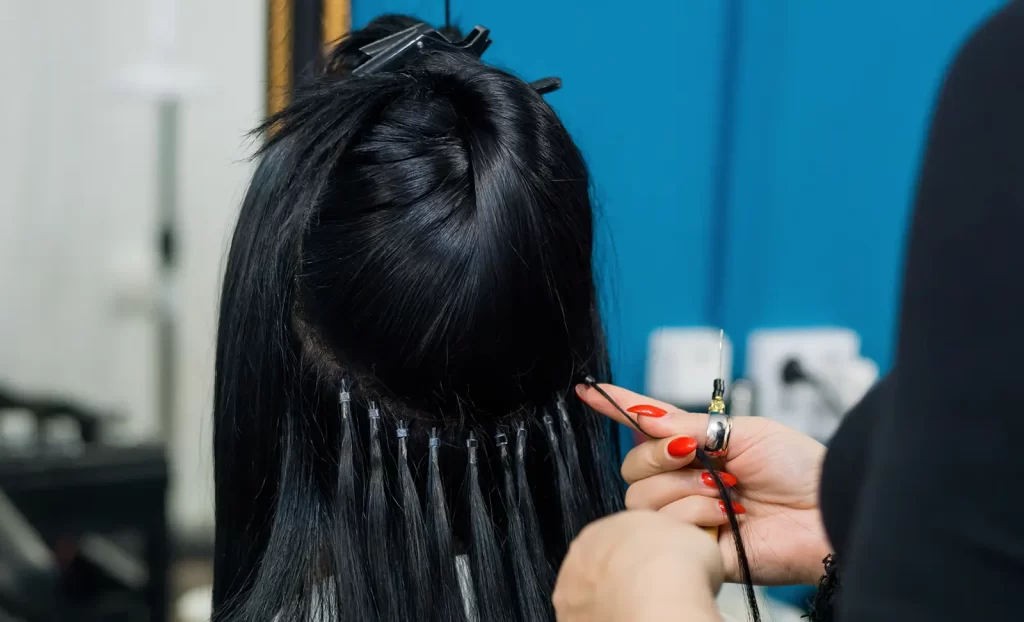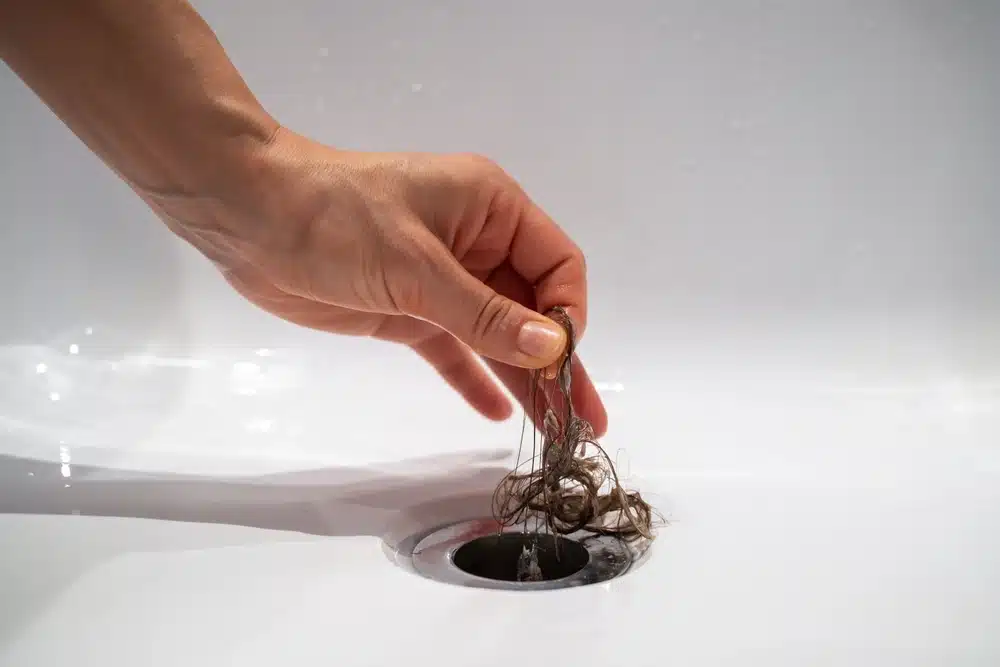Wanting long, luxurious hair is something a lot of people lust after. As there is no quick fix to growing your hair overnight, many people turn to the quick fix of hair extensions. Hair extensions are a simple and easy way to add length and thickness to your hair in no time at all.
Hair loss is very common, and it can happen for a number of different reasons, from genes to stress. We often get asked questions about extensions and hair loss, as well as more information about dying hair, certain styles, and everything else. This is because there is so much confusion around the real impact your habits and style choices have on your hair. Today, the experts here at Harley Street Hair Clinic are looking at the question: do hair extensions cause hair loss?
Hair Extensions Are So Popular!
Hair extensions are a popular method for adding thickness or length to your current hair, making them different from wigs, as wigs can be used even when the person has no hair at all. Instead, hair extensions act as a literal extension and are usually applied to the root of the hair. They can be purchased in various styles and colours to suit your hair’s texture, with many people even dying their hair extensions to ensure an even closer match.
There are many different types of hair extensions, including weaved, clip-ins, taped, and micro-looped. Each are quite different; for example, clip-ins come out of the hair at the end of each day, whereas micro-loops can stay in the hair for many months.
As they are so different, their relationship with hair loss is also unique. Some of these extensions will have more of an impact on hair loss, which is important to be aware of.
What is Traction Alopecia?
It’s a type of alopecia that’s defined by the pulling motion on the scalp, hence the term “traction”. Traction alopecia occurs when something pulls too tightly on the strands, leading to hair thinning and shedding. Certain hairstyles can lead to traction alopecia [1], including tight braids, dreadlocks, ponytails, and cornrows. When asking, “Do hair extensions cause hair loss?” the answer is usually “yes” due to traction alopecia.
But Are Hair Extensions Safe? Do Hair Extensions Ruin Your Hair?
As discussed above, there are many different types of hair extensions, all of which are applied with different methods. Some are safer and cause less damage to the hair than others. To avoid having to go down the route of a hair loss treatment for traction alopecia, we’re going to walk you through the different types and the pros and cons of each.
Clip In Hair Extensions and Hair Loss
One very popular hair extension method is having the extensions clipped into the hair. Clipped hair extensions are semi-permanent, and the extensions are attached by clipping small sections of the fake hair to sections of your real hair, as close to the hair roots as possible.
Clip in extensions are good as you can put them in and remove them as and when you wish, the semi-permanent method means you can wear them for a special occasion and then take them out straight after. However, if you wear the extensions daily the clips and hair can become quite heavy and put a strain on the hair they’re clipped into. This means clip-in extensions and hair loss have a strong relationship because they can cause hair close to the head (where the clips are) to become thin, giving off the appearance of shedding.
Pros:
Easy to Take Out
No Need to Wear Them Every Day
Cons:
Excessive Strain on the Hair
Can Lead to Hair Thinning
Glue In Hair Extensions and Hair Loss
Glue-in hair extensions are simply sections of hair that are glued to the scalp, as closely to the hairline as possible. These extensions are a more permanent solution, as they have to be removed by the use of a solution to dissolve the glue. If the extensions are not placed in the right place, the glue can damage your real hair, and during the removal process some hair can get caught and pulled out. When considering glue in extensions and hair loss, the best thing to do is to get them professionally done. This will minimise risks and ensure that harmful chemicals are handled properly.
Pros:
They’re Unlikely to Fall Out
They Last a Long Time
Cons:
They Can Damage Your Hair
You Can’t Take Them Out By Yourself
Weaves And Hair Loss
Weaves are created by braiding the hair into cornrows across the parting. Then, extensions are attached using a needle and thread. Weaves are very long-lasting. However, if they are applied too tight, they can put a huge strain on the scalp, which, if repeated, can lead to thinning and balding around the weave. Similar to clip-in extensions, the overuse of getting a weave can cause traction alopecia. On top of that, weaves aren’t very effective for thin hair, working much better in thicker hair as they have better grip in this way.
Pros:
They Last a Long Time
Lots of Grip When Applied Properly
Cons:
Bad Application Can Lead to Hair Loss
Micro Loops and Hair Loss
Micro loops are one of the most popular hair extension types and can last 6 to 9 months. Small strands of hair are looped around your natural hair and then clipped. If fitted properly, micro loops are the least damaging to your hair. However, depending on the number of strands you have added to your hair, they can put a great deal of weight and strain on the hair and scalp. This means this kind of hair extension can cause hair loss.
Pros:
They Are Discreet
They Don’t Cause a Lot of Damage
Cons:
They Take a Long Time to Apply
Weighing it Up: Do Hair Extensions Cause Hair Loss?
As you can see, there are many types of hair extensions – it’s not as easy as you’d think to answer the question “are hair extensions bad for your hair?” as it differs on a case-by-case basis. We generally don’t recommend getting glue hair extensions, as the glue can damage the hair over time. On the other side of the coin, micro loops are the least damaging (although they can cause damage if left too long or too many are put in). If you do choose to wear hair extensions, it’s best to go to a professional and follow care instructions properly.
Like most things to do with our hair and health, hair extensions are ok in moderation. Hair extensions can cause strain on our hair, which can, in turn, lead to traction alopecia.
Top Tips for Getting Extensions That Don’t Cause Hair Loss
Consider the Type of Extensions
Choosing hair extensions that work best on your hair is crucial, which is where speaking to a hair stylist comes in handy. For example, tape-ins or micro loops work well if you have fine hair.
Follow Care Instructions
Most hair extensions come with care instructions, such as how to properly wash your hair with them in. These instructions must be followed carefully to avoid losing hair.
Always Use Real Hair
Choosing synthetic hair for your hair extensions might be tempting, but we do not recommend this. Synthetic hair tends to be heavier than real hair, and that extra weight can cause even more strain on your scalp. Plus, it’s much harder to style synthetic hair, and will never look as natural.
Get Hair Extensions Applied by a Professional
We always advise that you get your hair extensions applied by a professional; this will lower the risk of the extensions putting any strain on your natural hair, causing hair loss. Plus, you can ask all the important questions – not just “Do hair extensions damage hair?” but also specific questions about how to take care of the extensions once worn.
Suffering from Traction Alopecia?
Experiencing hair loss is never easy. If you’ve suffered from hair loss that you believe is due to wearing hair extensions, please feel free to contact us for a no-obligation consultation, where one of our hair loss specialists will assess your hair loss and find a suitable treatment for you. Download our free hair track app to get started.
In Summary
Hopefully, we’ve answered the questions “Do hair extensions cause hair loss?” and “Do hair extensions ruin your hair?” To sum up, the answer is that, in some cases, it can, but that doesn’t mean hair extensions always lead to hair damage. Depending on the type of hair extensions you have in place, they can cause stress to the scalp and hair strands, causing traction alopecia. Fortunately, this is reversible when seeking the right hair restoration treatments.
Interested in a hair restoration solution? Take a look at our patients gallery, where you can see how much our treatments lead to hair growth. Rest assured that there are solutions out there to ensure your hair loss doesn’t last forever.
Sources:
- https://www.aad.org/public/diseases/hair-loss/causes/hairstyles
